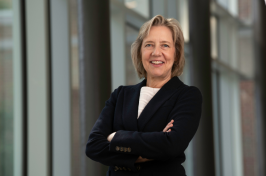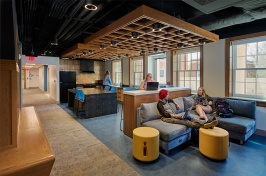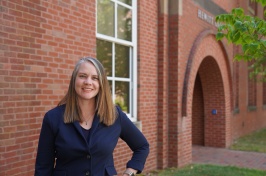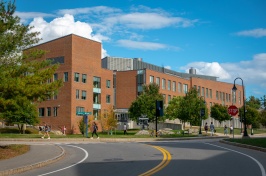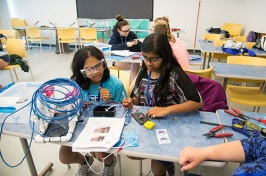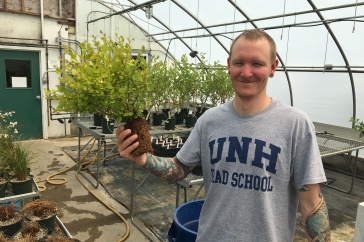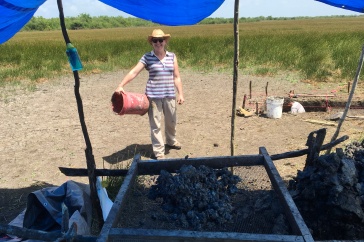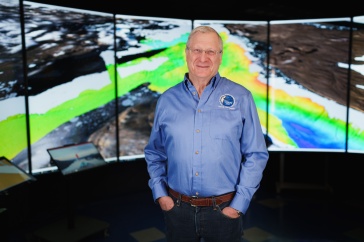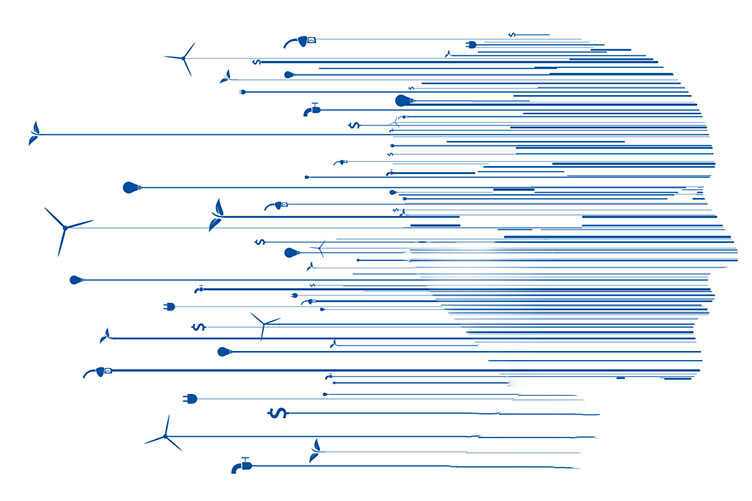
With climate change affecting resources as nearby as the coastal waters of southern Maine and New Hampshire and in regions as distant as Brazil and Egypt, UNH professors are delving not only into the science itself but also how individuals perceive the reality of a warming planet.
Lawrence Hamilton, professor of sociology and senior fellow at UNH’s Carsey School, has been conducting survey research on perceptions about climate and other science topics since 2007.
Public views about climate are changing, Hamilton confirms, but he describes the change as “a slow upward drift rather than the abrupt shift some surveys have been reporting.” The reason, Hamilton says, is that while many surveys simply ask about “climate change” or “global warming” without specifying a cause, the UNH surveys ask people whether they think humans or nature are the main cause. Most people admit climate is changing, but a substantial minority denies human activities play a large role.

Indeed, in a 2014 Carsey School brief, Hamilton found a whopping 53 percent divide between Republicans and Democrats on questions about whether and why climate change is happening. Parse the data further, subdividing those who identify themselves with the Tea Party out of the general pool of Republicans, and the gap widens to 60 percent.
“Human causation remains the core disagreement among politicians and the public, although not among scientists,” Hamilton says.
After eight years and more than 30,000 interviews, Hamilton says, “a central finding that recurs in all of this research is how strongly polarized public beliefs about climate change, the environment and science itself have become.”
“There may be lessons for the U.S. scientific community from their colleagues abroad. Perhaps avoiding the term ‘climate change’ and highlighting climate-related social and economic impacts that most matter to the public might help bridge ideological divides."
Stacy VanDeveer, professor of political science and chair of the department, has devoted much of his work in the past 10-plus years to climate change politics and policy options in North America, Europe and in global organizations like the United Nations Framework Convention on Climate Change.
VanDeveer, who is the faculty chair for UNH’s new dual major in sustainability, explains his research looks at “new modes of governance across borders related to energy and climate change. Some of my work also addresses the relationships between climate change and security and the interactive links — or nexus — between various natural resources and their exploitation and governance.”
Jeannie Sowers, associate professor of political science, has published on a variety of subjects including adaptation to climate change and water resources, with her current research spanning multiple years and including regular travel to Egypt to conduct interviews.
“The pace of change is so fast, with population growth estimated at 500,000 to one million per year in Cairo alone,” she explains. Egypt’s heat wave this past summer, with temperatures that soared to 114 degrees Fahrenheit, claimed more than 100 lives; sea level continues to rise and the Nile River delta is receding. The impacts of climate change are already a reality in Egypt, Sowers says, and they “take the existing vulnerabilities and add layers onto them.”
Science on Stage
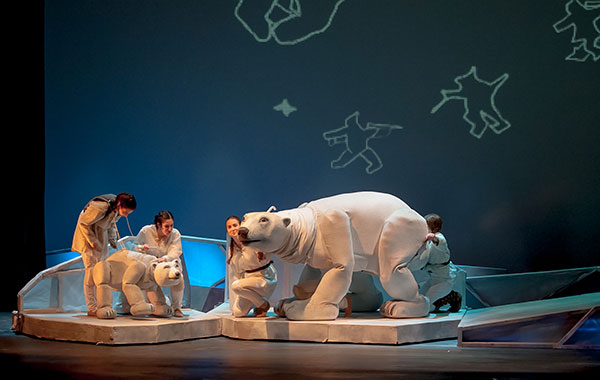
Can theater help us understand a changing climate? It can in the hands of David Kaye, professor and chair of the theatre and dance department. Kaye’s professional theatre company PowerPlay Interactive Development recently used its innovative blend of improvisation, performance and conflict resolution to bring to life how current land-use decisions and a changing climate will affect Granite Staters of the future. At a performance for partners in the UNH-led NH EPSCoR (Experimental Program to Stimulate Competitive Research), PowerPlay actors portrayed characters living 100 years from now, responding to two distinct development decisions made in 2015: A “business-as-usual” model that favored private development and individual property over conservation and a “community amenities” land use approach that limited sprawl.
Through the characters’ stories and reactions, the performances explored what life might be like with increased housing and road development or in a future with a more community-based, shared-resources model of land use that would let the state preserve its rural landscape but might have other impacts, such as increased taxes to fund services. The focus, Kaye explains, was not on promoting one particular agenda or opinion but creating an avenue for dialogue about land-use questions. “Theatre allows us to grapple with climate change at the human level, the only place where a transformation can really happen,” he says.
Sowers notes the term “climate change” itself is not what is being discussed; efforts are focused on addressing the effects in a region where, she points out, “conflict and climate change reinforce unrest, insecurity and vulnerability.”
Associate professor of sociology Tom Safford’s research includes a focus on understanding the social bases of environmental attitudes and beliefs as far off as coastal Brazil and much closer to home, where he’s a principal investigator on the National Science Foundation-funded New England Sustainability Consortium Project of NH EPSCoR (Experimental Program to Stimulate Competitive Research).
Given the importance of New England beaches to coastal communities and their economies, Safford’s discussions with stakeholders — including beachgoers and business owners — revealed concern about microbiological issues and their link to rising water temperatures that result in diminished water quality and fewer visits to the beach. While New Hampshire’s coastal beaches are among the nation’s cleanest, four percent of Maine’s total beach days had beach advisories or closures in 2014. Focusing on those concerns rather than discussing climate change in terms that have become politically charged could get individuals to change their behaviors, Safford suggests.
Similar issues related to climate change exist in Brazil, Safford notes, but as Sowers found in Egypt, there are differences: “All the ideological debates about climate change that dominate the U.S. don’t exist there,” says Safford, who is also a Carsey fellow. “Brazilian scientists and stakeholders are talking about pathogenic bacteria; they’re talking about changing ocean temperatures, but they emphasize the social and economic implications in the policy realm and when communicating to the public. They don’t feel the need to tie them to climate change.”
Going forward, he says, “There may be lessons for the U.S. scientific community from their colleagues abroad. Perhaps avoiding the term ‘climate change’ and highlighting climate-related social and economic impacts that most matter to the public might help bridge ideological divides. We know scientifically that rising ocean temperatures are linked to the appearance of pathogenic bacteria. In the U.S., one of the ways Americans most relate to the environment is by going to the beach. Can we use that as a jumping off point for new discussions and action?”
-
Written By:
Jennifer Saunders | Communications and Public Affairs | jennifer.saunders@unh.edu | 603-862-3585










